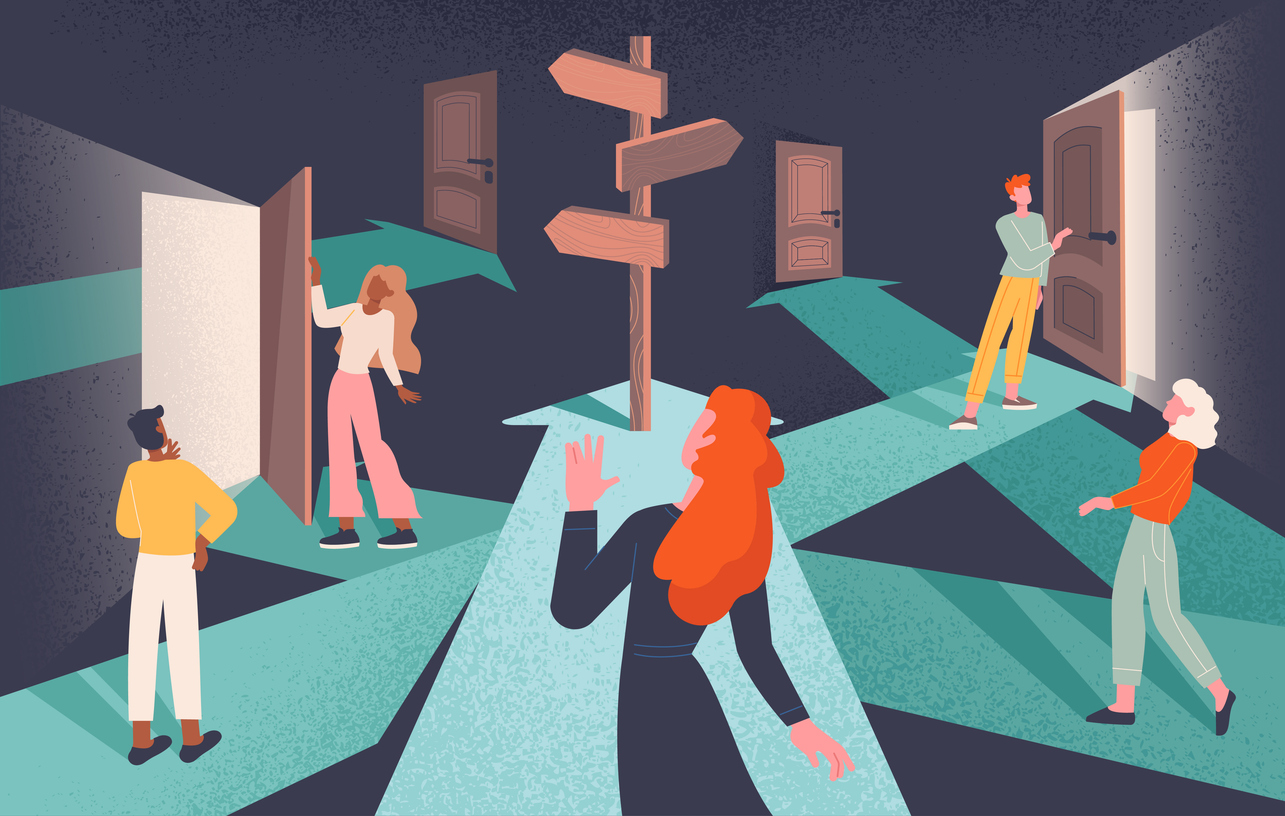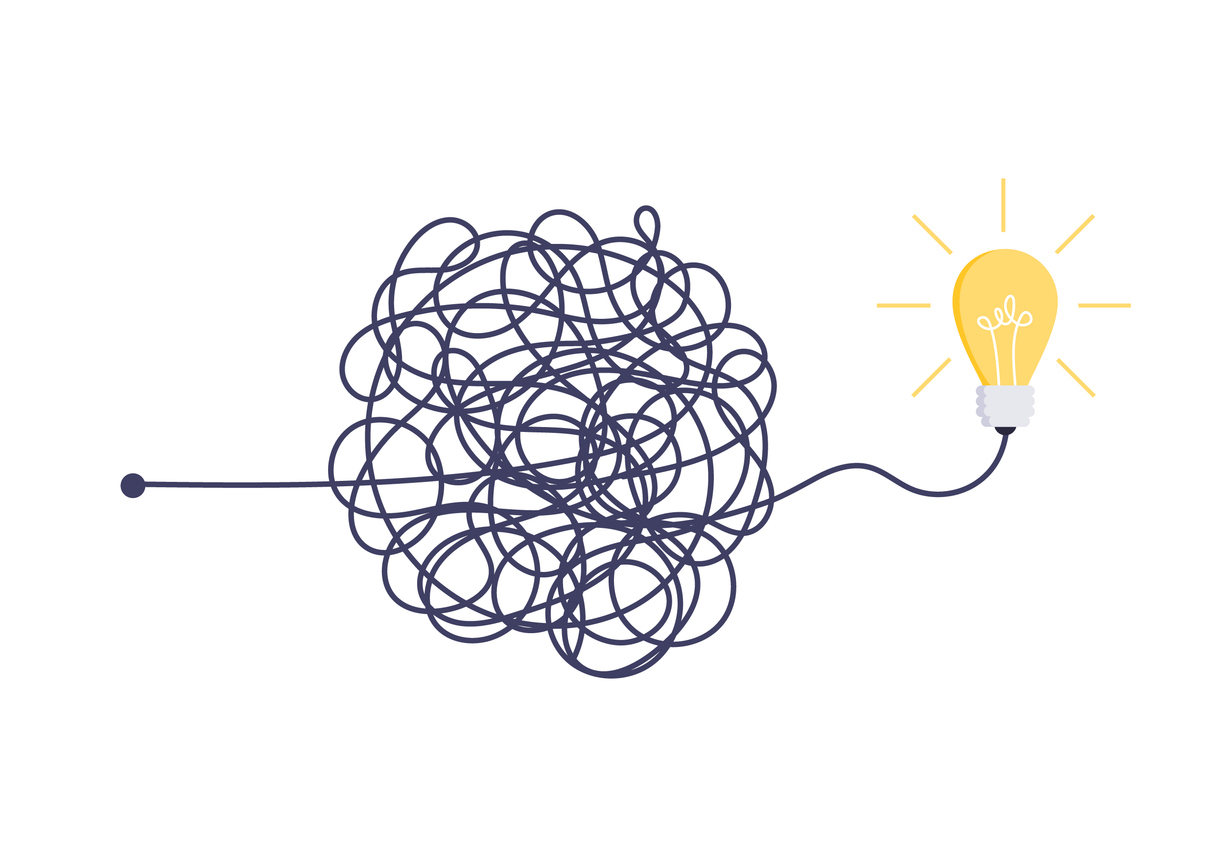How to create a values-based careers day
Rather than championing conventional career success, a pathways and possibilities day invites stories of personal struggle, squiggly careers and significant pivots

Sponsored by
I never enjoyed careers day when I was in school. Each year, the head of sixth form would trot out a career professional – usually a white male – who would stand in front of the class and talk about himself, before going through a prescriptive list of things you should do to be like him and ensure “success”.
Clearly, there are problems with this approach:
❌ It simply doesn’t mirror real life.
❌ It doesn’t empower the students’ autonomy and ambitions.
❌ It doesn't address the fact that success is entirely subjective for each individual.
❌ It is a crass oversimplification of the beautiful nuance, complexity and unpredictability of a real-life career path.
How then to create and curate a careers day that avoids the pitfalls above, and provides a meaningful and engaging experience for students?
Careers day: starting with a test
At Green School Bali, we experimented with a slightly different approach to the usual careers day. First, we asked all high-school students to take a personality test. We used the free 16 Personalities test, but I am aware that many careers-guidance platforms (such as Cialfo, Unifrog and Maia Learning) offer some form of psychometric personality test, and these are broadly similar in approach and application.
Students were asked to reflect on the results of this test: how accurate (or not) did they feel the results were? Which observations and statements did they feel really hit the nail on the head? Which of their friends had the same or similar personality types, and were those similarities apparent before they took the test, or was it something they only realised once labels had been applied to each individual?
Ultimately, students were urged not to take the results as gospel, but to use them as a starting point for deeper self-reflection. For some students, this allowed for conversations about their aspirations: what kind of person did they want to be, and what changes did they want to make to live into their values and aspirations?
Pathways and possibilities day
Once all students had completed the test, about 30 adult members of the community were invited to take part in the event – which we called the “pathways and possibilities day”, so as not to tether it to the idea of following specific career interests or jobs.
The majority of these adults were from the parent community, but we also invited Green School alumni and locals representing different professions. All participants were asked to take the same personality test and share their results with us.
We then devised a half-day of panel presentations, grouped by personality type, and asked our presenters to focus not on their career outcomes or tangible successes, but on those moments in their life when they had to draw on their own values and personality traits. Students had the freedom to choose whether they attended a session of someone with the same personality type as them or something completely different.
We also planned keynote speeches and activities that explored the concept of “squiggly careers” – a concept devised by Helen Tupper and Sarah Ellis, who in 2021 presented a TEDx talk on the topic – and invited our speakers to be authentic and honest about their personal journey, including challenges, setbacks and times they’d had to pivot.
Raw, authentic stories
What we saw and heard that day was absolutely incredible: raw, authentic stories of personal struggles, moments of acute realisation that sparked significant career pivots, and honest observations about corporate culture.
After the day had concluded, we sent a survey around to encourage students to reflect on what they had seen and heard, and how it made them feel (and think) about their future.
We received feedback across the whole spectrum, but on the whole it was overwhelmingly positive, with 80 per cent of students saying they found it “valuable” or “very valuable”. One student summed up how she grew to understand the theme of the event:
“First it seemed weird to me that the entire event was based on the 16 Personalities test, because such tests can be very inaccurate or show an incomplete picture of yourself. But as the event was taking place I started to really like the idea, because even though I would say this personality type describes only parts of me, I could really recognise myself in some of the stories or ideas shared by the parents. It kind of felt like being among the same kind, and being able to talk about things others might not understand. I really liked the theme of the day, and I think it was very valuable and fun as well.”
Connecting students with their personal values
For those willing to move away from the tried and tested standard careers-day formula, this type of values-based approach to exploring careers is far more rewarding and more valuable. It empowers students to be in charge of their own ambitions and personal-learning journeys, connecting them with their own set of personal values – which, let's face it, are the only things we have to fall back on when everything else is taken away.
And, finally, anyone who knows me knows that my own career pathway is about as squiggly as it gets. So for me, it was both edifying and enjoyable to offer a space for careers exploration that felt authentic, inclusive and human-centred, rather than creating pressure on students to aspire to preconceived notions of “success” and prescriptive pathways to achieve it.



